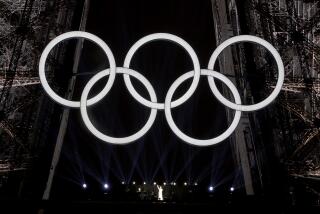Regional Outlook : Drinking a Toast to Europe’s Future : Leaders of 34 nations will meet in Paris next week. Times correspondents in key capitals report on their hopes and fears for the Continent.
- Share via
LONDON — When the leaders of the 34 nations of the Conference on Security and Cooperation in Europe (CSCE) convene next Monday around a pale, oval-shaped table in Kleber Center in Paris, it will mark the official end of the Cold War.
The summit meeting will also signal the start of the construction of a New Europe--with the heads of government playing a role not unlike their predecessors at the 1815 Congress of Vienna, which reorganized the Continent after the Napoleonic Wars.
The national boundaries redrawn at that historic, 19th-Century conference basically stood for 40 years. And while next week’s CSCE meeting has no such sweeping brief, it does bring together in a harmonious mood former bitter antagonists.
A centerpiece of the three-day summit will be the signing of an unprecedented treaty sharply reducing conventional arms deployed in Europe by East and West--a goal believed hopelessly visionary not long ago.
And after the ceiling lights dim and the television crews pack up, a small new CSCE Secretariat, probably based in Prague, will address itself to the nitty-gritty implementation of the lofty goals that will be enunciated in Paris.
These will include what some call a new Magna Carta, named for the 775-year-old agreement between the English king and his subjects which served as the foundation for democratic government.
“We will be taking concrete steps afterward for the broad ideas the summit will espouse,” said U.S. Ambassador John J. Maresca, representative to the CSCE Summit Preparatory Committee, which has been laboring in Vienna.
“These involve a document stating a commitment to human rights as a basis for government, free elections, and establishing a market system as the best way toward economic prosperity.”
Toward that end--in addition to the small CSCE secretariat of about 10 staffers--officials will be manning a Conflict Prevention Center to stave off regional quarrels (probably to be set up in Vienna); establishing a CSCE mechanism to monitor national elections (probably in Warsaw); and setting up regular consultations of the 34 foreign ministers, probably twice a year, as well as summit meetings of the heads of government every other year.
The meeting is also expected to appoint a semi-permanent CSCE parliamentary body, probably consisting of representatives from member nations’ legislatures.
And in Vienna immediately afterward, a new round of CFE talks will begin, which will attempt to reduce in a binding treaty the number of troops allowed in Central Europe.
The CSCE is not without its critics: Some officials fear a premature push for a CSCE that would take over military security responsibilities in Europe. Others warn that a permanent CSCE organization runs the risk of becoming an impotent “talking shop,” which will be unable to make fast and firm decisions.
The CSCE began life in Helsinki in 1972 when it was set up to deal with three main areas or “baskets” of issues: military security, economic cooperation, and human rights. There were 35 CSCE members then--all the European states except Albania, along with the Soviet Union, the United States and Canada. This year, the number dropped to 34 with the unification of Germany.
The first CSCE agreement was the Helsinki Final Act signed in 1975--which established so-called “confidence-building measures” between East and West, set standards for human rights, and endorsed existing European boundaries. There have been follow-up CSCE meetings, in Belgrade (1977-78), Madrid (1980-83), and Stockholm (1984-86), but the Paris summit promises to be dramatically different from all the others.
“The Paris summit,” commented U.S. Ambassador Maresca, “will really be a celebration of the end of the Cold War.”
Clubs of Europe: The Membership North Atlantic Treaty Organization (NATO) Belgium
Italy
Britain
Luxembourg
Canada
Netherlands
Denmark
Norway
France
Portugal
Germany
Spain
Greece
Turkey
Iceland
United States
Warsaw Pact Bulgaria
Poland
Czechoslovakia
Romania
Hungary
Soviet Union
Conference on Security and Cooperation in Europe (CSCE) Austria
Belgium
Britain
Bulgaria
Canada
Cyprus
Czechoslovakia
Denmark
Finland
France
Germany
Greece
Hungary
Iceland
Ireland
Italy
Liechtenstein
Luxembourg
Malta
Monaco
Netherlands
Norway
Poland
Portugal
Romania
San Marino
Soviet Union
Spain
Sweden
Switzerland
Turkey
United States
Vatican
Yugoslavia
More to Read
Sign up for Essential California
The most important California stories and recommendations in your inbox every morning.
You may occasionally receive promotional content from the Los Angeles Times.












